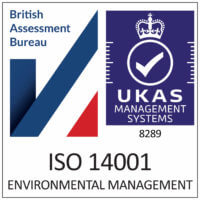The Impact of Peat-Free All-Purpose Compost on Native UK Plants
Oct 15th 2023
Let’s take a closer look at the fascinating world of gardening and explore the impact of peat-free all-purpose compost on native UK plants. As avid gardeners, we’re all constantly searching for ways to nurture the beautiful flora that thrives in our beloved country. With concerns over the use of peat as a gardening resource, this article sheds light on the potential benefits of peat-free all-purpose compost. Join us on this horticultural journey as we uncover the effects of this alternative compost on the growth, health, and sustainability of our native UK plants.
Effects of Peat-Free All-Purpose Compost on Native UK Plants
Background and Definition of Peat-Free All-Purpose Compost
Peat is an organic material formed over thousands of years from the decomposition of plant matter in waterlogged conditions. Peat extraction for horticultural purposes has raised concerns due to its environmental impact, including the release of carbon dioxide and the destruction of unique peatland habitats. Peat-Free All-Purpose Compost is a sustainable alternative that does not contain peat, offering a more eco-friendly option for gardeners.
The Importance of Native UK Plants
Native UK plants are of immense ecological significance. They have adapted to local climatic conditions and provide essential habitats and food sources for native wildlife. Additionally, they contribute to the overall biodiversity of the UK and play a crucial role in maintaining the balance of local ecosystems. Protecting and preserving native UK plants is vital for the health and sustainability of the environment.
The Shift towards Peat-Free Compost Products
There has been a notable shift in recent years towards peat-free compost products. This change is driven by various factors, including increasing awareness of and concern for environmental issues such as climate change, habitat destruction, and carbon emissions. Government regulations and initiatives, as well as the support of environmental organizations, have further encouraged gardeners to transition to more sustainable practices.
Benefits of Peat-Free All-Purpose Compost
Peat-free all-purpose compost offers numerous benefits for both gardeners and the environment. By reducing the demand for peat, it helps to preserve precious peatland ecosystems, which are vital carbon sinks. The use of peat-free compost also improves soil structure, enhances nutrient retention, and promotes healthy plant growth. Additionally, it contributes to water conservation by reducing runoff and supports a more cost-effective and sustainable gardening approach in the long run.
Research and Studies on the Impact of Peat-Free Compost on UK Plants
Numerous research studies have examined the impact of peat-free compost on UK plants. Comparative studies have been conducted to assess the differences between peat-free and peat-based compost in terms of plant growth, development, and flowering. These studies have also explored the effects on biodiversity and soil microorganisms, as well as the availability of nutrients and overall plant health. Long-term studies have been conducted to evaluate sustainability and the potential environmental benefits of peat-free compost use.
Case Studies: Successes of Peat-Free All-Purpose Compost
Real-life case studies provide valuable insights into the successes of using peat-free all-purpose compost with native UK plants. Examples showcase positive outcomes, including improved plant growth, increased biodiversity, and reduced carbon emissions.
Best Practices for Using Peat-Free All-Purpose Compost with Native UK Plants
To maximize the benefits of peat-free all-purpose compost, it is important to follow best practices. Choosing the right compost that suits the specific needs of native UK plants is crucial. Proper soil preparation and planting techniques, including adequate moisture monitoring and irrigation, are essential. Additionally, managing weed growth, pest control, and appropriate mulching and weed barrier methods play a significant role in ensuring successful plant growth.
Promotion and Adoption of Peat-Free All-Purpose Compost
Promoting and advocating for the use of peat-free all-purpose compost is essential for its widespread adoption among gardeners. This can be achieved through educational campaigns and initiatives that emphasize the environmental benefits, cost-effectiveness, and long-term viability of peat-free options. Collaboration between environmental organizations, government agencies, and gardening associations can further drive the transition towards sustainable gardening practices. Balancing commercial interests with environmental concerns is crucial to ensure the availability and affordability of peat-free all-purpose compost for gardeners.
Conclusion and Future Outlook
The shift towards peat-free all-purpose compost is a positive step towards protecting the environment and native UK plants. The numerous benefits, including reduced carbon emissions, preservation of peatland ecosystems, improved soil structure, and water conservation, make peat-free compost an attractive choice for gardeners.






